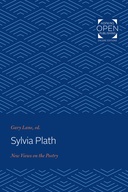Explore

Originally published in 1979. Sylvia Plath is one of the most controversial poets of our time. For some readers, she is the symbol of women oppressed. For others, she is the triumphant victim of her own intensity—the poet pursuing sensation to the ultimate uncertainty, death. For still others, she is a doomed innocent whose sensibilities were too acute for the coarseness of our world. The new essays of this edited collection (with a single exception, all were written for this book) broaden the perspective of Plath criticism by going beyond the images of Plath as a cult figure to discuss Plath the poet. The contributors—among them Calvin Bedient, Hugh Kenner, J. D. O'Hara, and Marjorie Perloff—draw on material that most previous commentators lacked: a substantial body of Plath's poetry and prose, a moderately detailed biographical record, and an important selection of the poet's correspondence. The result is an important and provocative volume, one in which major critics offer an abundance of insights into the poet's mind and creative process. It offers insightful and original readings of many poems—some, like "Berck-Plage," scarcely mentioned in previous criticism—and fosters new understandings of such matters as Plath's comedy, the development of her poetic voice, and her relation to poetic traditions. The serious reader, whatever his or her initial opinion of Sylvia Plath, is sure to find that opinion challenged, changed, or deepened. These essays offer insights into a violently interesting poet, one who despite, or perhaps because of, her suicide at age thirty continues to fascinate and trouble us.
This book is included in DOAB.
Why read this book? Have your say.
You must be logged in to comment.
